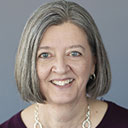AICPA Peer Review Conference takeaways No. 2
September 27, 2023 | Faye Hayhurst, CPA

Does the peer review process feel collaborative or adversarial? How does a firm anticipate their peer review with confidence rather than with dread or fear?
The AICPA’s 2023 Peer Review Conference, which I attended as the CPA on staff for peer reviews administered by the MNCPA, provided so much great content that can help firms through the peer review process. Here are my insider tips on improving a firm’s peer review experience.
Know the standards and their effective dates
When a firm chooses to engage in performing accounting and auditing work, there is literally no excuse for not being aware of a new accounting or auditing standard. There’s a lot to track, which is why most firms purchase practice aids to assist.
Tip No. 1: Find appropriate resources and keep them up to date.
Here are key things the peer reviewer expects a firm to know:
- The financial statement framework being applied in a financial statement presentation. The accounting and presentation will likely be different under GAAP, cash, income tax, and FRF for SMEs or any other framework, and the titles of the statements may differ as well. Engagement letters and representation letters should also have language matching up with the framework being used.
- Technical requirements of the financial framework being reported on. If GAAP is being used, the firm should demonstrate that they have considered, and implemented if applicable, all accounting standards in effect for the period of the engagement, or else reported an exception to GAAP in their report. One of the most recent — and most significant — changes to GAAP is ASC 842 regarding leases. It’s effective now! If an income tax basis is being used, then the accounting should match tax code.
- New standards that apply to the type of work being done. Audit, SSARS and SSAE standards change not infrequently, and effective dates can vary widely. The firm will be dinged in peer review if they haven’t considered standards that were in effect for the period they’re reporting on. In effect now: SAS 142 on Audit Evidence, which is not earthshaking but contains updates to terminology and the lens through which the auditor views evidence. Effective for periods ending on or after Dec. 15, 2023: SAS 143,144,145.
Pay attention to templates
A common matter reported is that a firm had incorrect or missing language in a report, engagement letter or disclosure. A common explanation is that the firm was aware of the correct language but rolled forward something from the prior year without updating it.
Tip No. 2: If reusing prior documents, include a step in the process to compare with current requirements.
Documentation is as important as ever
The AICPA and peer review have been strongly emphasizing documentation for at least 10 years. A common saying for a while was “Not documented = not done.” An AICPA peer review technical guru at the conference said he doesn’t like that phrase. Often, a conversation will demonstrate that the CPA did the work, even if their workpapers don’t show evidence of it. Peer review does not need to allege that a CPA didn’t do the work; instead, the perspective in peer review is, “If the work is not documented, we can’t give you credit for doing the work.”
A compare/contrast analogy is homework. Teachers assign homework to help students learn. An argument could be made that showing evidence of completing homework is irrelevant if the student can demonstrate knowledge of the material, most likely on a test. But when it comes to attest work, especially on an audit or review engagement, the process is just as important as the final product of financial statements with a report. It’s not enough for the financial statements to be accurate; the CPA must have performed the procedures necessary to meet standards for the type of work they were engaged to do.
Tip No. 3: Document work to allow the peer reviewer (or any other knowledgeable professional) to understand the procedures performed without getting additional oral representations.
Look ahead
Yes, it’s a challenge to stay abreast of everything that currently applies to the firm’s clients and the professional services the firm provides. But professionals can’t sit back and wait until a standard’s effective date to look at how it applies. Many standards need a lot of preparation and thought to implement.
Case in point: the new
Quality Management Standards. They are not effective until Dec. 15, 2025, but they will most likely take much longer to understand and implement than most standards. Every firm that performs work under SAS, SSARS and/or SSAEs will need to review, revamp and rewrite their system of quality related to A&A work. If this assignment is approached with a positive attitude, the result will be a system that mitigates risk in more effective ways and identifies and remediates deficiencies earlier. And doesn’t that sound like a path that will lead to an easier peer review?
Tip No. 4: have a quality champion (an individual or a team) to prepare for implementation of quality management standards.
Spread the love of clean peer reviews
Contrary to what some CPAs may think, peer reviewers do not enjoy finding problems in the work performed by their peer review clients. Peer reviewers
love clean peer reviews. The AICPA and administering entities like the MNCPA
love clean peer reviews.
But they also share a mission to hold professionals accountable in meeting standards, and to help firms improve. Follow the tips provided and face the next peer review confidently.
Topics: Peer Review, Accounting & Auditing
Faye Hayhurst, CPA

Faye Hayhurst is the MNCPA director of finance and administration. She is committed to using numbers to tell relevant stories, although she also employs words, charts and occasionally clothing to communicate a message. While some have questioned her about the pressures of being the CPA for the MNCPA, Faye considers presenting financial information to fellow CPAs a dream job. Outside of storytelling with numbers, Faye enjoys directing her church's handbell choir, visiting national parks and other scenic places, and checking out the chocolate products at Trader Joe's. Faye can be reached at 952-885-5540 or fhayhurst@mncpa.org.
Blog Posts by this author